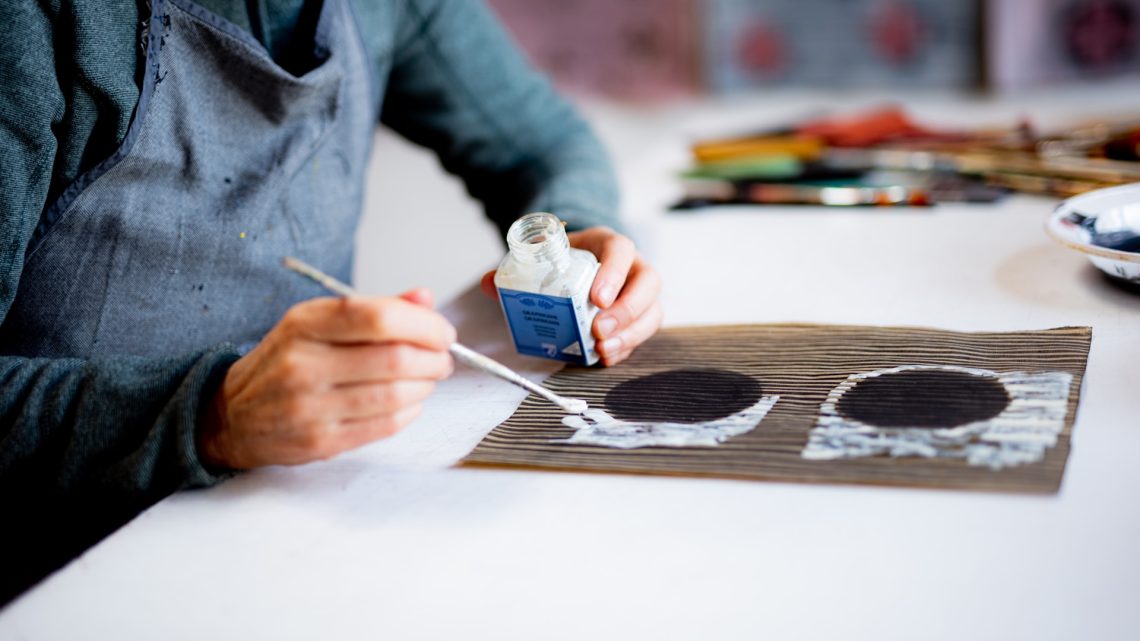
Simple Daily Practices to Boost Creativity
November 1, 2024 0 By WisdomCreativity is often thought of as an elusive spark that only a few possess. However, it’s actually a skill anyone can cultivate with the right habits and mindset. Regardless of your field or personal goals, enhancing your creativity can enrich your life, make problem-solving easier, and help you stand out. This article dives into practical, simple daily practices to boost your creativity, no matter where you’re starting from.
1. Start with Morning Journaling
Morning journaling, often referred to as “morning pages,” can serve as a powerful daily habit for clearing the mind. This practice, introduced by Julia Cameron in The Artist’s Way, involves writing three pages of unfiltered thoughts every morning. The idea is to release mental clutter, allowing creativity to flow more freely.
Why It Works: Morning journaling helps you identify what’s on your mind before your day begins. Writing down your thoughts and worries allows you to release what’s holding you back and unlock space for creative ideas to flourish.
How to Start:
- Set aside 10-15 minutes every morning with a notebook.
- Write without judging your thoughts or worrying about grammar.
- Let it be free-flowing, raw, and honest – the goal is to release, not to create perfect prose.
2. Practice Mindfulness Meditation
Mindfulness meditation can help you tap into the present moment, allowing you to see things from a fresh perspective. Creativity thrives when we can step back from our habitual ways of thinking and approach situations with an open mind.
Why It Works: Meditation increases awareness, reduces stress, and improves focus. These benefits create a mental environment conducive to creative thinking, making it easier to solve problems and generate new ideas.
How to Start:
- Begin with just 5 minutes each day in a quiet space.
- Focus on your breathing or observe your thoughts as they arise without judgment.
- Gradually increase your meditation time to 10-15 minutes as you get comfortable with the practice.
3. Engage in Daily Doodling or Sketching
One of the most approachable creative exercises is doodling. Even if you don’t consider yourself an artist, taking a few minutes to draw can stimulate your imagination.
Why It Works: Doodling or sketching allows your mind to wander and connect ideas in non-linear ways. This type of “loose” thinking encourages creative problem-solving by engaging your brain in a visual, tactile way.
How to Start:
- Keep a small notebook and pen handy and spend 5-10 minutes each day drawing anything that comes to mind.
- Experiment with shapes, lines, or random sketches – the content isn’t as important as the process.
- Challenge yourself to draw things you don’t normally think of, like abstract concepts or emotions.
4. Explore a New Environment Daily
Changing up your environment, even in small ways, can stimulate creativity by providing fresh perspectives and new sensory inputs.
Why It Works: Novelty spurs the brain into activity, which helps in forming new connections – a crucial aspect of creativity. New environments encourage you to notice details, think differently, and break out of routine patterns.
How to Start:
- Visit a new coffee shop, park, or street in your neighborhood.
- Rearrange your workspace or introduce new items, like plants or art, that inspire you.
- Observe the details around you and take mental or physical notes on anything that catches your eye.
5. Set Aside “Creative Breaks” Throughout the Day
It’s essential to schedule breaks dedicated to creative activities unrelated to your main work. These breaks allow your mind to wander, which often leads to creative ideas and insights.
Why It Works: When you step away from routine tasks, your brain continues to work on problems in the background, often leading to unexpected solutions.
How to Start:
- Dedicate 10-15 minutes during the day to do something creative – whether it’s listening to music, writing a poem, or brainstorming ideas.
- Treat these breaks as mental refreshments that reenergize your creative mind.
- Experiment with creative activities you’ve never tried before – variety is key!
6. Read Broadly and Regularly
Reading widely across genres and topics is one of the best ways to nurture creativity. Different styles, ideas, and viewpoints provide you with new building blocks for your own creative ideas.
Why It Works: Exposure to diverse ideas helps you draw connections between seemingly unrelated concepts, a hallmark of creative thinking.
How to Start:
- Set a goal to read for 15-20 minutes daily on different subjects, from novels to science articles or philosophy.
- Take notes on ideas or quotes that inspire you or make you think differently.
- Keep a reading journal to track your thoughts, responses, and ideas sparked by what you read.
7. Engage in Physical Activity
Physical exercise, especially aerobic activities, has been shown to enhance creativity by improving mood and reducing stress. Even a short walk can lead to a boost in creative thinking.
Why It Works: Exercise increases blood flow to the brain, releases endorphins, and helps clear mental clutter, all of which can improve your ability to think creatively.
How to Start:
- Incorporate a short walk or workout into your daily routine, ideally in the morning to kickstart your day.
- Try yoga or tai chi, which are especially effective for mindfulness and creativity.
- Reflect on any new ideas or inspirations that arise during or after your exercise session.
8. Challenge Yourself with Creative Prompts
Creative prompts, especially open-ended ones, can help you think outside your usual patterns. These prompts don’t require you to be a writer or artist; the goal is to get you to think in a way that’s different from your usual approach.
Why It Works: Creative prompts encourage divergent thinking by presenting a challenge that requires unconventional solutions.
How to Start:
- Look for daily creative prompts online or in books. Examples include “Write about the most unusual place you’d like to visit” or “Invent a new use for an everyday object.”
- Take 5-10 minutes each day to respond to a prompt, whether in writing, sketching, or simply brainstorming.
- Don’t worry about perfection – the purpose is to stretch your imagination.
9. Embrace Small Risks
Creativity often requires stepping outside your comfort zone, and taking small, controlled risks can be an excellent way to do that. These might include sharing an unfinished idea, trying a new skill, or expressing an opinion you wouldn’t usually voice.
Why It Works: Small risks build confidence and help you overcome the fear of failure, which is often a barrier to creativity. As you take these risks, you’ll find it easier to experiment and be open to new possibilities.
How to Start:
- Challenge yourself to try something you’d normally avoid, such as public speaking, presenting a new idea at work, or sharing personal art.
- Reflect on what you learned or how you felt after taking the risk.
- Celebrate even the smallest steps forward as they help you grow your creative confidence.
10. Reflect on Your Day and Track Your Creative Progress
A daily reflection practice helps you identify patterns, recognize what inspires you, and refine your creative process over time. This reflection doesn’t need to be extensive; even a few minutes can offer valuable insights.
Why It Works: Reflection encourages self-awareness and allows you to recognize what works best for you creatively. Tracking progress also gives a sense of accomplishment and keeps you motivated.
How to Start:
- At the end of each day, write down any creative ideas, inspirations, or breakthroughs you experienced.
- Consider what sparked those moments – was it a book you read, a new environment, or a creative risk?
- Look back on your reflections periodically to notice patterns and evolve your creative habits.
Final Thoughts
Creativity isn’t reserved for the “gifted.” You can significantly boost your creative potential by dedicating a few minutes each day to one or more of these practices. Creativity is a skill that thrives on consistent, small actions – so start small, be patient, and watch your creativity grow.
Related
Related posts:
- 10 Habits to Boost Your Productivity Daily
- 8 Ways to Cultivate Self-Love Every Day
- Ways to Stay Focused When Working from Home
- 50 Inspiring Popular Quotes to Keep You Motivated All Day
- Top 5 Skills to Develop for a Growth Mindset
- The Power of Visualization in Achieving Success
- How to Improve Your Focus in a World Full of Distraction

